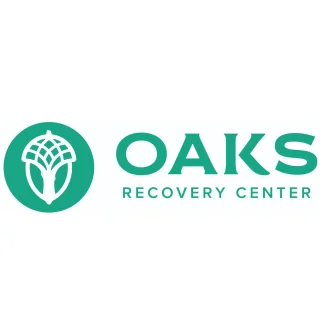SCVRD Greenwood
SCVRD Greenwood is a private rehab located in Greenwood, South Carolina. SCVRD G...
Oaks Recovery Center is a drug and alcohol addiction treatment rehab in Greenwood, SC. Its mission is to provide effective and quality recovery resources for all individuals and families impacted by substance use disorder through connection, community, and care.
Firmly rooted in the 12 step recovery approach, Oaks Recovery addiction treatment in an environment where individuals can find hope, healing, and lasting transformation.
The residential drug rehab programs at Oaks Recovery provide men and women with a structured environment for intensive healing and recovery. Participants reside in gender specific facilities where they receive a combination of evidence based therapies, counseling, holistic approaches, and life skills development.
In their intensive 42 day program, men and women learn and implement the essential skills and daily practices needed to stay sober through the 12 step program of action. Patients always have the option to transition into the long term intensive program at any time.
This four month long term residential program features the same services as Oaks Recovery’s short term residential program while providing men and women with more time to practice and master the skills patients need for a successful life in recovery.
Oaks Recovery recognizes the importance of engaging in healthy and enjoyable activities by offering a range of recreational activities to promote physical, mental, and emotional well being. These activities may include fitness programs, outdoor adventures, art therapy, yoga, and other wellness focused experiences.
Contact us for more information: (864) 538-4569

Connect with Oaks Recovery Center by calling their admissions team directly.
(864) 538-4569 Website Get DirectionsGroup therapy is any therapeutic work that happens in a group (not one-on-one). There are a number of different group therapy modalities, including support groups, experiential therapy, psycho-education, and more. Group therapy involves treatment as well as processing interaction between group members.
In individual therapy, a patient meets one-on-one with a trained psychologist or counselor. Therapy is a pivotal part of effective substance abuse treatment, as it often covers root causes of addiction, including challenges faced by the patient in their social, family, and work/school life.
Life skills trainings involve all the skills a person must have in order to function successfully in the world. These include time management, career guidance, money management, and effective communication. Truly successful addiction recovery is based on the ability to not only live substance-free, but to thrive. Life skills teaches the practical necessities of functioning in society, which sets clients up for success in life, and therefore sobriety.
Recreational therapy (aka therapeutic recreation) uses creative and fun activities to help with addiction recovery. Recreational therapists lead patients in entertaining and engaging activities like sports or games; art (drawing, painting, sculpture); drama, music, and dance; and/or community outings (field trips) to improve patients' physical, social, and emotional well-being.
In individual therapy, a patient meets one-on-one with a trained psychologist or counselor. Therapy is a pivotal part of effective substance abuse treatment, as it often covers root causes of addiction, including challenges faced by the patient in their social, family, and work/school life.
Life skills trainings involve all the skills a person must have in order to function successfully in the world. These include time management, career guidance, money management, and effective communication. Truly successful addiction recovery is based on the ability to not only live substance-free, but to thrive. Life skills teaches the practical necessities of functioning in society, which sets clients up for success in life, and therefore sobriety.
Recreational therapy (aka therapeutic recreation) uses creative and fun activities to help with addiction recovery. Recreational therapists lead patients in entertaining and engaging activities like sports or games; art (drawing, painting, sculpture); drama, music, and dance; and/or community outings (field trips) to improve patients' physical, social, and emotional well-being.
Life skills trainings involve all the skills a person must have in order to function successfully in the world. These include time management, career guidance, money management, and effective communication. Truly successful addiction recovery is based on the ability to not only live substance-free, but to thrive. Life skills teaches the practical necessities of functioning in society, which sets clients up for success in life, and therefore sobriety.
Recreational therapy (aka therapeutic recreation) uses creative and fun activities to help with addiction recovery. Recreational therapists lead patients in entertaining and engaging activities like sports or games; art (drawing, painting, sculpture); drama, music, and dance; and/or community outings (field trips) to improve patients' physical, social, and emotional well-being.
Recreational therapy (aka therapeutic recreation) uses creative and fun activities to help with addiction recovery. Recreational therapists lead patients in entertaining and engaging activities like sports or games; art (drawing, painting, sculpture); drama, music, and dance; and/or community outings (field trips) to improve patients' physical, social, and emotional well-being.
SCVRD Greenwood is a private rehab located in Greenwood, South Carolina. SCVRD G...